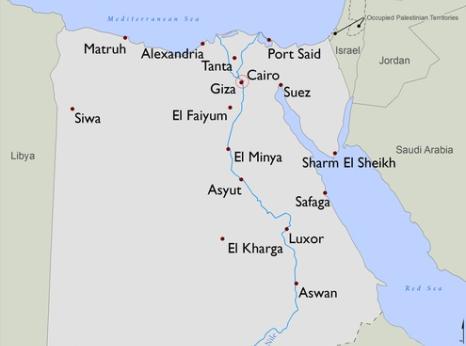Egypt: Opposition Politician 'S Health Deteriorating

Abdelmoniem Aboulfotoh was a leading member of the Muslim Brotherhood until he resigned to run for presidency in 2012. He was arrested in February 2018 after giving interviews that were sharply critical of President Abdel Fattah al-Sisi, a month before al-Sisi was re-elected.
Abdelmoniem Aboulfotoh suffers from diabetes, high blood pressure and an enlarged prostate, according to medical records predating his detention. The prison administration has routinely delayed or denied his requests for medical assistance inside or outside the prison, and access to his private doctors inside the prison at his own cost. In 2021, the prison administration also refused to transfer him to an external hospital for prostate surgery despite medical advice by his private doctor and his relatives’ willingness to cover the costs.
On 8 August 2022, his family submitted a complaint to the National Council for Human Rights, regarding the medical negligence he suffers in detention. They asked that he be given the necessary medical care to preserve his life. In it, they provided a detailed explanation of his health condition and latest developments, and the most urgent medical needs that are not available to him in prison, in order to determine the accurate diagnosis and the necessary course of treatment. They also required his transfer to an external hospital as soon as possible, at the expense of his family. On 9 August 2022, the family submitted a statement to the Public Prosecutor indicating the serious and potentially life-threatening health condition after his exposure to four heart attacks that occurred suddenly, accompanied by severe pain that lasts for longer periods, and without any physical effort before it. The statement mentions his impaired ability to make physical effort, which they surmise indicates a blockage in some of the arteries of the heart.
According to credible sources, he has been detained in Mazraet Tora Prison in solitary confinement in a cell measuring 2m x 3m that is hot in summer and cold in winter and does not have a bed. Until mid-2021, the prison administration has limited his access to exercise to an alley inside the ward for no more than one hour a day. Then he is now allowed to exercise alone for one hour and a half outside of the ward.
On 25 October 2021, President Abdel Fattah Al-Sisi announced that he would not extend the state of emergency, in force since 2017, which allowed for the creation of ESSCs. Article 19 of the law governing the state of emergency stipulates that ongoing trials are to continue even after the state of emergency is no longer in force. In the three months preceding the decision not to renew the state of emergency, the Egyptian authorities referred at least 26 human rights defenders, activists and opposition politicians to trial before emergency courts. Proceedings in front of ESSCs are inherently unfair. Defendants are denied the right to appeal their convictions and sentences to a higher tribunal. Only the president retains the power to authorize, quash or commute sentences or to order a retrial. Other documented fair trial violations include the right to have adequate time and facilities for the preparation of their defence, right to communicate with counsel of their own choosing and right to a public hearing. In addition, judges at the ESSC routinely deny requests by lawyers to photocopy casefiles, which in some cases exceed 2,000 pages, instead instructing them to review them in court. Prosecutors and judges have also failed to provide copies of indictment orders to defendants and their lawyers, undermining their right to be informed of the exact nature and cause of the charges against them.
On 29 May 2022, an ESSC sentenced 25 political opponents, including politician Mohamed al-Kassas to 10 years in prison, after convicting him of trumped-up terrorism-related charges and spreading false news. In recent months, dozens of political opponents and critics have been convicted of bogus charges following grossly unfair trials by ESSCs. Among them are politicians Zyad el-Elaimy who was sentenced in November 2021 to five years in prison, following an unfair trial by an ESSC simply for criticizing Egypt's human rights record and economic policies. Security forces arrested him in June 2019, shortly after he discussed running in the 2020 elections and detained him without trial for over two years.